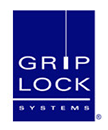Industry News
Architecture Billings Index Continues Its Streak Of Soft Readings
August 22, 2019
Demand for design services in July remained essentially flat in comparison to the previous month, according to a new report released today from The American Institute of Architects (AIA).
AIA’s Architecture Billings Index (ABI) score of 50.1 in July showed a small increase in design services since June, which was a score of 49.1. Any score above 50 indicates an increase in billings. In July, the design contracts score dipped into negative territory for the first time in almost a year. Additionally, July billings softened in all regions except the West, and at firms of all specializations except multifamily residential.
“The data is not the same as what we saw leading up to the last economic downturn but the continued, slowing across the board will undoubtedly impact architecture firms and the broader construction industry in the coming months,” said AIA Chief Economist Kermit Baker, PhD, Hon. AIA. “A growing number of architecture firms are reporting that the ongoing volatility in the trade situation, the stock market, and interest rates are causing some of their clients to proceed more cautiously on current projects.”
Key ABI highlights for July include:
-Regional averages: West (51.2); Midwest (48.9); South (48.3); Northeast (48.3)
-Sector index breakdown: multi-family residential (50.6); institutional (49.8); commercial/industrial (49.2); mixed practice (48.9)
-Project inquiries index: 54.9
-Design contracts index: 49.0
The regional and sector categories are calculated as a three-month moving average, whereas the national index, design contracts and inquiries are monthly numbers.
About AIA
Founded in 1857, AIA consistently works to create more valuable, healthy, secure, and sustainable buildings, neighborhoods, and communities. Through more than 200 international, state and local chapters, AIA advocates for public policies that promote economic vitality and public wellbeing.
AIA provides members with tools and resources to assist them in their careers and business as well as engaging civic and government leaders and the public to find solutions to pressing issues facing our communities, institutions, nation, and world. Members adhere to a code of ethics and conduct to ensure the highest professional standards.









































